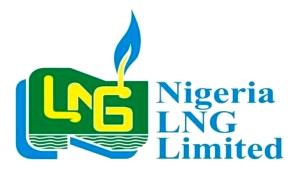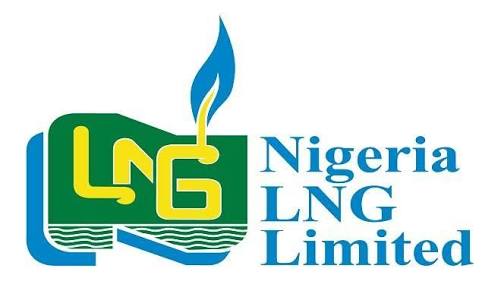

By Obas Esiedesa
REVENUE from gas feedstock sales to Nigeria LNG Limited rose marginally by 0.12 percent in the first eight months of 2021 to $486.77 million compared to $486.17 million recorded over the same period last year. Latest reports by the Nigerian National Petroleum Corporation, NNPC, showed that feedstock sales to NLNG in September 2021 fell by 29.9 per cent to $59.84 million compared to $85.41 million recorded in September 2020.
Checks by Energy Vanguard also showed that sales in August 2021 grew by 88.18 per cent to $64.66 million, compared to $34.36 million over same period last year. In July, sales also grew by 84.4 per cent to $54.09 million compared to $29.33 million recorded in July 2020. Sales in June 2021 rose by 73.79 percent to $48.02 million as against $27.63 million recorded over the same month in 2020. However, feedstock sale in May 2021 fell by 12.16 percent to $38.56 million compared to $43.9 million recorded in May last year.
READ ALSO:Nigerian banks closed 234 branches, 649 ATMs, IMF report
NNPC reports also indicated that revenue from feedstock sales to NLNG in April 2021 was $54.6 million, a rise of 20.37 per cent compared to $45.36 million over the same period last year.
In March 2021, revenue from feedstock sales amounted to $66.43 million, a decline of 3.6 per cent compared to $68.93 million recorded in March 2020. In February 2021, sales revenue also dipped by 31.77 per cent to $52.24 million compared to $76.57 million recorded over same period last year. The story was the same in January 2021 when revenue also declined by 35.28 per cent to $48.33 million from $74.68 million recorded in January 2020.
Nigeria LNG
With a total production capacity of 22 million tonnes per annum of liquefied natural gas and 5mtpa of natural gas liquids from its six-train plant, the NLNG is one of the top 10 suppliers of LNG in the world. It supplies LNG to European, South American, Middle East and Far East markets. It relies on the NNPC and other in-country suppliers for its gas feedstock for the export market.
Cooking gas shortage in midst of abundance
Despite Nigeria’s rich gas reserves estimated at 206 trillion cubic feet, consumers have had to deal with acute shortage of Liquefied Petroleum Gas (cooking gas) in the past few months which has led to over 100 per cent rise in price. Known largely as a gas province, Federal Government’s 10 years plan to have Nigeria’s economy run on gas is facing serious threat with the lack of adequate production in-country.
With spiraling cooking gas price, consumers are beginning to turn away from the product as a source of cooking fuel. Checks by Energy Vanguard in Abuja, showed the price of 12.5kg of cooking gas has risen by 13.3 per cent to N8,500 from N7,500 it sold a month ago. However, to boost domestic supply, the Nigeria NLG disclosed that it has increased supply to domestic market to 450 metric tonnes.
NLNG Managing Director and Chief Executive Officer, Dr. Philip Mshelbila, who disclosed this in Lagos last week, explained that since the company intervened in 2007 to ease the challenges around the availability of LPG, it has consistently made the product available in the country. According to him: “The company has increased its committed volume to the market by consistently reducing its export LPG volumes in satisfaction of domestic demand, increasing domestic provision from 50,000MT in 2007 to 450,000MT from 2021.
“NLNG provides a dedicated vessel for this purpose, LPG Vessel, Alfred Temile. NLNG has taken steps to diversify the supply base of the product by expanding its delivery point from the Lagos Terminals to include a Port Harcourt Terminal to ensure products are not concentrated in one region by infusing flexibility in supply base,” he added.
Why price continues to rise – Expert
Meanwhile, the Executive Secretary of the Nigeria Association of LPG Marketers, NALPGAM, Mr. Bassey Essien, has blamed the rising price of cooking gas on supply shortage as well as on the introduction of Value Added Tax, VAT, on imported LPG.
Speaking at a virtual forum on the issue, Mr. Essien described the Federal Government’s decision to impose VAT on imported cooking gas as ill-timed. He said: “the problem with the cooking gas crises is largely due to inadequate supply. The demand has outstripped supply. Current statistics show that out of the over 1.2 million metric tonnes consumed in the country, 40 per cent is sourced locally while the balance 60 per cent is imported.
“The devaluation of the Naira, the high international price (sales are benchmarked at the international price for even locally produced gas). All these factors account for the high price. “The now introduced 7.5 per cent VAT and payment of Customs duties on cooking gas which had been removed since, now makes the imported gas expensive and the high cost of importation will have to be passed onto consumers,” he explained.
Mr. Essien who urged that government to suspend the VAT on imported LPG, expressed concern that the price would rise further, hitting N10,000 for 12.5kg by December this year. “When the decade of Gas declaration was made, the government had targets but if these targets must be met, there must be seriousness on the part of government to ensure these targets are actualized.
“The import duties on gas and VAT are totally ill-timed and very retrogressive at this stage. We have mentioned several times that the government should come out with a policy that will compel all local production to be channeled into the domestic market first.”
“Until you are sufficient in production, you cannot just discourage imports and cause the attendant hardship that is prevalent now. The focus on the targets of the decade of gas must not be derailed”, he added.
The post Gas feedstock sales to NLNG rises to $486.77m appeared first on Vanguard News.
0 Commentaires